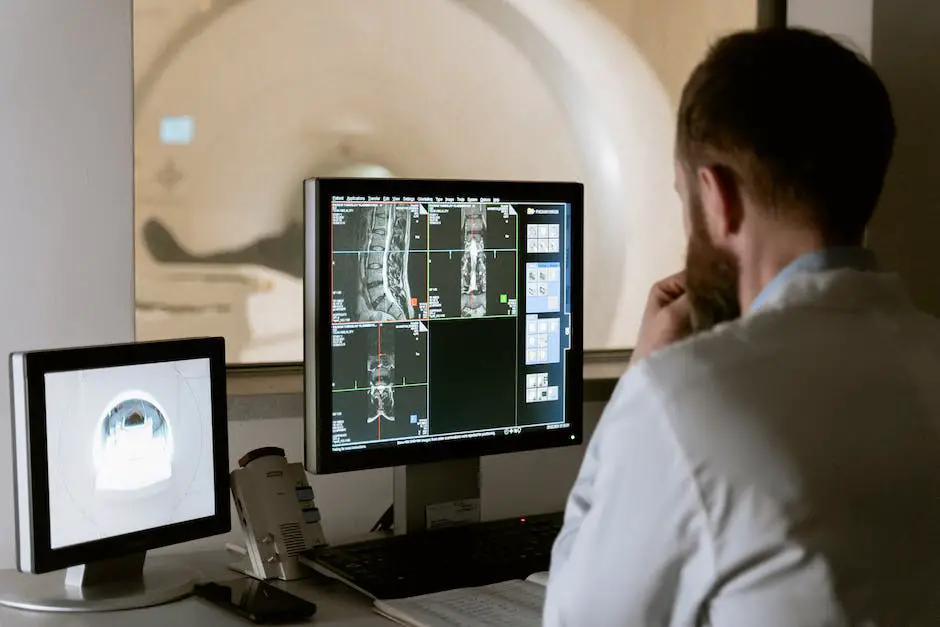The human body is an intricate marvel, operating in a delicate balance of biological and physiological processes. Among its daily functions are the digestion of food and the expulsion of waste, activities that when disturbed, prompt discomfort and concern. Two such disturbances, indigestion and abdominal bloating, are common complaints among modern individuals. This article delves deep into these two conditions, providing a thorough understanding of each, their relation to our diet and lifestyle, and the most effective methods for their prevention, treatment, and management.
Understanding Indigestion
Understanding Indigestion: An Overview
Indigestion, medically known as dyspepsia, is a common health condition that can cause diseases discomfort or painful sensations in the upper abdomen. Such sensations may include a feeling of fullness during a meal, even when you’re not eating much, or uncomfortable fullness after a meal. It’s not a disease itself, but rather a set of symptoms often occurring together. Indigestion is generally related to eating and can be triggered by various factors, most notably diet and lifestyle.
Common Symptoms of Indigestion
The symptoms of indigestion can vary widely and may come and go, but the most frequently reported ones include abdominal pain or discomfort, bloating, belching and gas, nausea and occasional vomiting, an acidic taste on the mouth, burning sensation in the stomach or upper abdomen, and growling stomach. It’s also common to experience early fullness during a meal – that is, feeling too full to finish the meal. However, please note that some people may experience indigestion without apparent symptoms.
Identifying the Causes
A wide range of factors can cause indigestion, from eating habits to specific medications, and underlying health issues. Consuming fatty, greasy, or spicy foods in large quantities, overeating or eating too quickly can lead to indigestion. Additionally, lifestyle factors including smoking, heavy alcohol consumption, and high levels of stress may also bring on episodes of indigestion. Medications, particularly certain painkillers and steroids, can cause indigestion. Additionally, some people may experience indigestion as a result of gastroparesis, peptic ulcers, gallstones, stomach infections, gastritis, or as a symptom of other gastrointestinal disorders.
The Impact of Diet and Lifestyle Choices
The connection between diet, lifestyle choices, and indigestion is significant. Consuming large meals or eating too quickly can strain your digestive system and cause indigestion. Similarly, certain foods known to cause gas such as beans, peas, whole grains, and certain vegetables like broccoli and cabbage, can contribute to bloating and discomfort. A diet high in fats slows digestion and increases the chances of indigestion. Lifestyle habits like smoking and excessive caffeine or alcohol intake may also spur indigestion.
Understanding and Managing Indigestion and Abdominal Bloating
To manage or even prevent indigestion and associated bloating, it’s important to make certain lifestyle and dietary changes. Smaller, more frequent meals instead of consuming larger portions at once, and ensuring thorough chewing and slow eating can make a significant difference. Being mindful of the foods and beverages you consume specifically avoiding those that tend to trigger indigestion can help significantly as well. Limiting alcohol and quitting smoking are also advised. Regular physical activity helps maintain an ideal weight, which can in turn prevent frequent indigestion. Techniques for managing stress effectively like relaxation exercises and meditation could also aid in controlling indigestion. However, it is always advised to seek professional medical advice in case of persistent indigestion. This symptom may be indicative of a severe underlying health issue.

Understanding Abdominal Bloating
Exploring Abdominal Bloating
Abdominal bloating refers to a state where the gastrointestinal (GI) tract is filled with excess air or gas. This leads to a feeling of fullness or tightness in the abdomen, often accompanied by visible swelling or distention. Occasional, minor bloating can be a normal occurrence, but if the bloating becomes frequent or excessive it could be a symptom of a medical condition such as indigestion.
Symptoms Associated with Abdominal Bloating
While bloating can manifest differently for different people, common symptoms include feeling excessively full, tightness in the abdomen, frequent burping or belching, and rumbling or gurgling in the stomach. Moreover, bloating can cause discomfort or even pain, ranging from minor annoyance to severe distress. In some cases, bloating can also cause physical abdominal distention, where the belly appears noticeably enlarged.
Understanding the Connection between Diet, Lifestyle, and Abdominal Bloating
Experts have long ascertained that dietary and lifestyle factors can greatly influence the incidence of abdominal bloating. Certain foods are known to produce more gas compared to others, enhancing the possibilities of bloating; examples of such food substances include beans, lentils, broccoli, cabbage, onions, and carbonated drinks. Additionally, eating too quickly, overeating, or talking while eating can lead to swallowing more air, which also contributes to bloating.
Similarly, lifestyle factors such as stress, lack of physical activity, and certain behaviors like smoking or chewing gum can further exacerbate the condition. People with gastrointestinal disorders are also more prone to suffering from abdominal bloating.
Indigestion and its Relation to Abdominal Bloating
Indigestion, which is also known as upset stomach or dyspepsia, happens when the body has difficulty digesting food. This condition is often associated with abdominal bloating. This is because when food isn’t properly broken down in the stomach or small intestine, it passes into the large bowel in an undigested state. Here, bacteria ferment the undigested food producing gases, like methane and hydrogen, which cause bloating.
Preventing Bloating through Adjustments to Diet and Lifestyle
There are a few ways through which one can prevent abdominal bloating or minimise its effects. These include making dietary modifications like avoiding bloating-inducing foods, incorporating more fiber into the diet, and staying adequately hydrated.
Likewise, lifestyle changes can also help manage and prevent bloating. Such changes may include regular exercise, reducing stress by incorporating relaxation techniques, and breaking the habit of swallowing air, which can be achieved by eating more slowly, refraining from talking while eating, and avoiding behaviors such as gum-chewing or smoking. Maintaining regular bowel movements by respecting the body’s internal call to void can also help prevent bloating.
To foster a well-rounded understanding of an individual’s health, it is always advisable to seek the professional counsel of a healthcare provider for personalized guidance.

Treatment and Management for Indigestion and Bloating
Grasping the Concepts of Indigestion and Abdominal Bloating
Known for causing discomfort or a burning sensation in the upper abdomen, indigestion, also termed as dyspepsia, is a widespread health issue. This condition generally manifests as premature fullness during meals, abdominal pain, and persistent unease in the upper abdominal region. Abdominal bloating provides a distinct feeling of a swollen or full abdomen and is often a companion symptom to indigestion. Overeating or the excessive intake of fatty, oily, or spicy foods can trigger these conditions. Certain beverages like caffeinated, alcoholic, or carbonated drinks can have similar effects. These symptoms may also arise due to existing health conditions like gastritis, peptic ulcers, celiac disease, gallstones, or gastroesophageal reflux disease.
Over-The-Counter Medications
Over-the-counter medications are a practical first line of treatment for indigestion and bloating. Antacids, including products such as Tums, Maalox, Mylanta, and Rolaids, can help neutralize stomach acid and relieve symptoms of indigestion. Simethicone products like Gas-X and Mylicon, on the other hand, aid in reducing gas and bloating. Other medications, like Pepcid, Zantac, and Prilosec OTC that are H2 blockers and proton pump inhibitors, respectively, reduce the production of stomach acid.
Prescription Drugs
If over-the-counter medications do not provide relief, healthcare providers may prescribe stronger versions of the proton pump inhibitors or H2 blockers. Antibiotics may also be prescribed if a bacteria, H. pylori, is identified as the cause of indigestion. Other prescribed medications for severe bloating and indigestion may include prokinetics that aid in faster emptying of the stomach and provide relief.
Lifestyle Adjustments
Making specific changes to lifestyle habits can contribute significantly to the management of indigestion and bloating. This may include eating smaller, more frequent meals instead of large meals, avoiding eating late at night, and maintaining a healthy weight. Limiting intake of fatty and spicy foods, caffeinated beverages, and alcohol can also be beneficial.
Evidence-Based Home Remedies
Several at-home remedies support indigestion and bloating relief. Peppermint tea is known for its ability to soothe stomach muscles and increase bile flow, reducing symptoms. Ginger also contains natural anti-inflammatory properties that can help reduce symptoms. Incorporating dietary changes such as consuming high-fiber foods to support digestion can also improve symptoms. Regular exercise and relaxation techniques can help manage stress, a common trigger for both conditions.
When to see a Doctor
Despite the availability of various medications, both over-the-counter and prescribed, and home remedies, it’s important to seek medical attention when symptoms are severe, persistent, or accompanied by other concerning signs like unexplained weight loss or persistent vomiting. The healthcare professional can identify if there’s an underlying condition causing these symptoms that needs more specific treatment.

Having navigated through the intricacies of indigestion and abdominal bloating, it becomes clear that these conditions are closely linked to our diet and lifestyle choices. Fortunately, solutions are within our reach – from over-the-counter medications and prescription drugs to evidence-based home remedies. By making wise eating choices, maintaining a healthy lifestyle, and seeking medical assistance when needed, a more comfortable, bloating-free life is indeed achievable. It’s crucial to remember, as you embark on this journey towards improved health, that every individual is unique. Therefore, what works for one person may not necessarily work for another. Start where you stand, make necessary adjustments, and find your balance for optimal gastrointestinal health.
